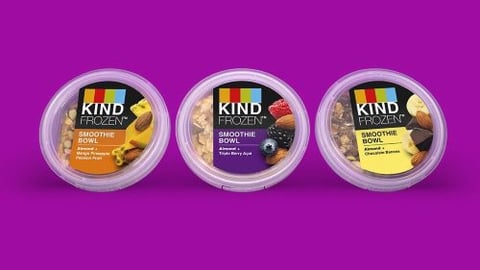Frozen Foods Can Get Consumers Back to a Healthier Lifestyle
A major shift toward eating at home during the COVID-19 pandemic has prompted consumers to stock up on ingredients and meal solutions that offer longer shelf life, affordability and convenient ease of preparation. Social distancing has disrupted personal fitness routines and prompted some to overindulge in comfort foods.
As a result, many Americans face unwanted weight gain. Yet scientific evidence suggests that keeping the body healthy is one of the first-line defenses against severe health risks related to the novel coronavirus. Frozen foods can play a big role in helping consumers get back on track to a healthier lifestyle. Research suggests four hours of meal preparation time can be saved simply by using three frozen entrées a week — that’s good news for stressed and time-pressed consumers.
Supermarket retailers can use themed educational selling promotions to help customers navigate the new normal and make healthier food choices, while driving foot traffic and sales within the frozen category. During the month of March, consider two distinct but complementary promotional themes: Frozen Foods Month, designated by the Harrisburg, Pa.-based National Frozen & Refrigerated Foods Association (NFRA) and National Nutrition Month, designated by the Cleveland, Ohio-based Academy of Nutrition and Dietetics.
NFRA offers its members a March 2021 promotional toolkit with the overarching theme “Savor the taste of real foods — just frozen!” geared to promote the frozen category to consumers in-store, online, and through traditional, digital and social media, as well as through community events across the country. The campaign is intended to increase sales and consumption of frozen foods and enhance overall positive sentiment regarding the frozen category. Retailers can invite consumers to participate in the Easy Home Meals $10,000 consumer sweepstakes and coupon giveaway while competing themselves in the national Golden Penguin Awards, which recognize food industry promotion, marketing and merchandising efforts within multiple categories. Throughout the campaign, retail dietitians can highlight specific ways to incorporate frozen ingredients into nutritious meal solutions.
The March National Nutrition Month 2021 campaign, Personalize Your Plate, can be used concurrently to help consumers take the stress out of meal planning and create nutritious meals that meet both cultural and personal food preferences. Supermarkets can highlight diverse offerings throughout the store, including in the freezer case. A variety of convenient, time-saving frozen ingredients and meal solutions can support a healthy lifestyle. Retail dietitians can use print, digital platforms or virtual classes to help consumers assemble nutritious meals that incorporate frozen foods as ingredients, while demonstrating specific culinary techniques that maximize flavor without adding excess calories. Engage with customers by hosting a social media “personalize your plate” contest that challenges customers to post photos showing how to use one or more frozen ingredients to make nutritious meals or snacks.
Beyond March, retailers can share the messages of the 2020-25 Dietary Guidelines for Americans (DGs) as part of a long-range health-and-wellness education campaign. The newest guidelines, released in December 2020, encourage Americans to “Make Every Bite Count” by choosing nutrient-dense foods often and staying within calorie limits. In ads or via social media, retail dietitians can share their favorite ways to select and prepare nutrient-dense frozen foods, suggest ways to fine-tune traditional recipes that call for frozen ingredients, and demonstrate the best ways to use frozen foods within healthy dietary patterns at every stage of life.
A few more frozen insights:
• Nearly 90% of the U.S. population do not meet the recommended intake of vegetables (2½ cups for those eating 2,000 calories a day). Flash-frozen vegetables such as edamame, cauliflower, broccoli, Brussels sprouts, corn, peas, lima beans, green beans, chopped spinach, sweet potatoes and carrots can easily be kept on hand year-around for use in entrée recipes, soups or side dishes.
• Research demonstrates that a diet rich in fruit containing vitamins A and C supports immune health. Frozen fruits such as strawberries, blueberries, pineapple, peaches, mangoes and cherries are often packaged without added sugars and can be used in blended smoothie drinks, as oatmeal toppers or as part of better-for-you dessert recipes.
• Currently, 98% of consumers eat fewer whole grains than recommended, while 74% exceed limits on eating refined grains. Frozen brown rice, whole grain breads and quinoa add convenience while boosting whole grain intake.
• The DGs recommend choosing lean cuts of meat, poultry or other plant-based meat alternatives, and eating two or more servings of seafood per week. The good news is that these recommended foods can all easily be found right in the freezer case.




